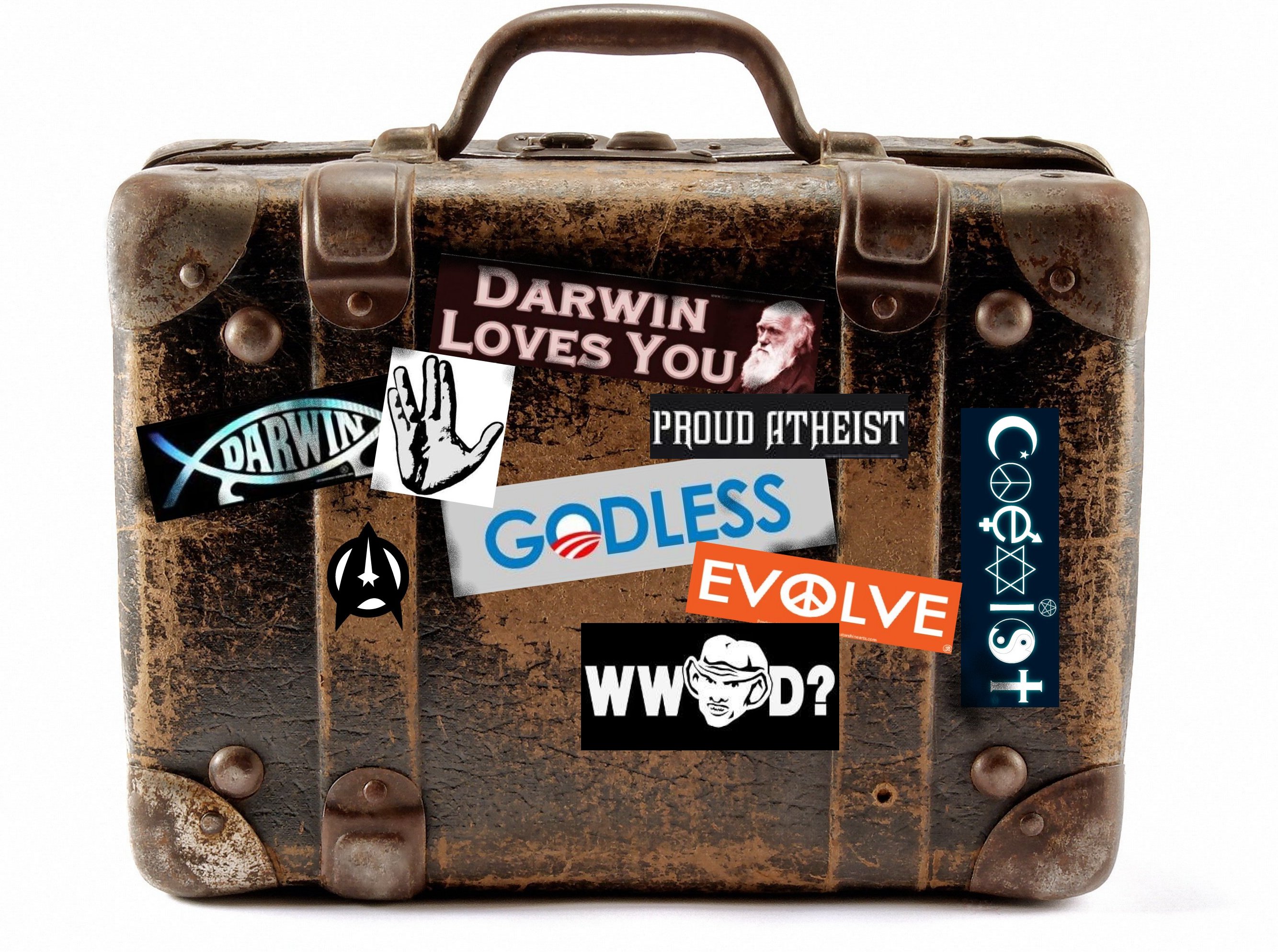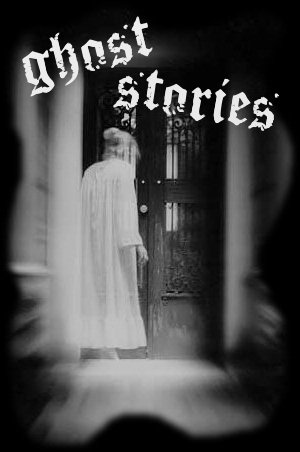 Horror, it’s been suggested, is a great genre for Christian writers to explore biblical themes like sin, evil, holiness, and the supernatural. In his article, A Guide to Reading Ghost Stories, Robert Woods makes a similar point. Referencing Russell Kirk’s essay “A Cautionary Note on the Ghostly Tale,” Woods writes:
Horror, it’s been suggested, is a great genre for Christian writers to explore biblical themes like sin, evil, holiness, and the supernatural. In his article, A Guide to Reading Ghost Stories, Robert Woods makes a similar point. Referencing Russell Kirk’s essay “A Cautionary Note on the Ghostly Tale,” Woods writes:
As with G.K. Chesterton’s assertion in his “Ethics of Elfland,” fairytales are inherently moral as they reflect a universe of moral order and consequences when good is dismissed and evil embraced. Russell Kirk writing of his own ghost stories says, “What I have attempted, rather, are experiments in the moral imagination. Readers will encounter elements of parable and fable…literary naturalism is not the only path to apprehension of reality. All important literature has some ethical end; and the tale of the preternatural…can be an instrument for the recovery of moral order.” (emphasis mine)
So just as there are “laws” that must be yielded to in the natural order, in “ghost stories” there is “a parallel principal within the supernatural order.” The affirmation of this “supernatural order” is key to the power of such tales. Or as Kirk puts it, “The better uncanny stories are underlain by healthy concept of the character of evil.” In other words, a universe with a moral order, where good and evil, holiness and horror, have real consequences, is intrinsic to ghost stories.
The authors’ “takes” turn interesting when ghost stories are juxtaposed against science fiction. Woods makes this point:
For Kirk, the “ghost tale” may better communicate certain truths when compared to science fiction. “For symbol and allegory, the shadow–world is a better realm than the mechanized empire of science fiction.”
These “certain truths” that Kirk references are, of course, truths belonging to  the supernatural, moral order. The “mechanized empire” of science fiction cannot adequately grapple with such realities precisely because it denies them. This is what Kirk describes as “the dreary baggage of twentieth-century naturalism.”
the supernatural, moral order. The “mechanized empire” of science fiction cannot adequately grapple with such realities precisely because it denies them. This is what Kirk describes as “the dreary baggage of twentieth-century naturalism.”
Kirk explains in his essay:
…many people today have a faith in “life on other planets” as burning and genuine as belief in a literal Heaven and a literal Hell was among twelfth-century folk, say—but upon authority far inferior. . . . Having demolished, to their own satisfaction, the whole edifice of religious learning, abruptly and unconsciously they experience the need for belief in something not mundane; and so, defying their own inductive and mechanistic premises, they take up the cause of Martians and Jovians. As for angels and devils, let alone bogies—why, Hell, such notions are superstitious! (bold mine)
So the naturalist, having “demolished… the whole edifice of religious learning,” must deify “something.” Or as Chesterton put it, When man ceases to believe in God, he doesn’t believe in nothing. He believes in anything. Thus, having no supernatural moral order to point to, the naturalist must look for something to fill the void. Of course, this defies his “own inductive and mechanistic premises.” Nevertheless, they replace angels and devils with “Martians and Jovians.” They swap God for the Universe, redemption for evolution. “Dreary baggage” indeed!
Because much science fiction is built on “naturalism” — a denial of a “supernatural order” — the appeal to morality lacks bite. Morality grounded in naturalism, i.e., societal mores, tribal regulation, individual preference, etc., is not nearly as compelling as morality grounded in a “supernatural order.” This is why, it seems, ghost stories ARE superior to science fiction for exploring moral issues.
- Ghost stories appeal to a supernatural order.
- Science fiction stories appeal to a natural order.
Morality grounded in the Absolute (a supernatural order) is far more compelling than morality grounded (?) in the transient. But for the naturalist, because there is no absolute supernatural order, morals can only be transient. Relativistic flotsam is all the atheist can really offer.
Of course, this is not to suggest that the humanistic science fiction author cannot write from a “supernaturalist” frame of reference, but that they cannot do so without “defying their own inductive and mechanistic premises.” The horrorist needn’t make any such leap. A moral supernatural order is intrinsic to the ghost story. We enter such a tale with the cargo of Good and Evil.
For the naturalist, however, Hell is a superstition. As is a supernatural moral order. Let them deify “Martians and Jovians” all they like. In the naturalistic Universe, appealing to ultimate Good or Evil is unnecessary. And irrational. But such is “the dreary baggage” of twenty-first-century naturalism.















I don’t entirely agree. I agree that stories with a supernatural element (to use your terms) have something that stories grounded in the natural don’t have. But I’ve always been under the impression that a lot of science fiction included some form of religion.
L Ron Hubbard was the master of this (not that I’ve read any), but Star Wars, Dune etc. have an underlying belief system that drives the actions of many of the characters. These stories can still explore moral issues, even if there is a slightly different definition of good and evil.
I’ve enjoyed Russell Kirk’s short work immensely. “Lex Talionis” is may favorite, so far.
I too, just as Iola pointed out, was immediately going to point out Star Wars type fiction. If your Universe lacks God, then put God (or Good and Evil) in….
The lack of a Christian God is not the death knell for a compelling moral story. I can think of plenty of science fiction stories that followed a strict moral code, Asimovs Foundation series, Orson Scott Card’s Ender series…just to name a couple.
I’m gonna say it is the story and the skill of the writer that is more important to whether any novel carries a significant moral “bite”. Not just whether it is horror vs. sci fi.
And, why no shout out for Fantasy?
Iola and Jim — Of course sci-fi stories can contain religion and religious themes. I have “The Sparrow” by Mary Doria Russell on my desk now, which is often cited as one such book. The point isn’t whether supernatural themes can be explored through sci-fi, but whether IN A NATURALISTIC FRAMEWORK, which much sci-fi operates from, this works. Gene Rodenberry was an atheist / humanist who, in his last published novel, portrayed “God” as a malfunctioning computer that’s been “stuck” on the image of Christ. See my post Star Trek’s Loopy Deity for more. Point is, he was a good naturalist. Religion was just an evolutionary glitch. There was no supernatural moral order. If the Universe in entirely natural, with no supernatural origin, God and religion is meaningless, at least toothless, no matter how much an author incorporates them into their tale.
re. The Sparrow
Don’t do it to yourself.
Dissin’ scifi. I see how you are.
I read an interesting post recently about how pervasive religious and spiritual themes are in science fiction these days (meaning they are showing up a lot). Would be nice if I could find that article…
You lost me about half way through this post. Here specifically: ‘Because much science fiction is built on “naturalism” — a denial of a “supernatural order” — the appeal to morality lacks bite.’
One of the reasons I love scifi is because it often has such a strong moral bite. I’m thinking of the movie “Moon”. I will never be able to wrap my brain around the spiritual implications presented in the story. Gives me chills just thinking about it, and the vehicle of science fiction is what created such an effective, glaring focus on the story’s important moral questions.
I think I read that article. Was it something quoted by Passive Guy?
Jessica, I’m not dissing sci-fi. I’ve written some and would like to do more. Here, I’m agreeing with Kirk that, “the ‘ghost tale’ may better communicate certain truths when compared to science fiction.” I own the movie “Moon” and agree with you about it. The point here isn’t that ethics, religion, and morality cannot be explored through sci-fi. My point is that “much science fiction [and science!] is built on ‘naturalism.'” Influential atheist and humanistic writers in science fiction include H.G. Wells, Robert Heinlein, Arthur C. Clarke, Isaac Asimov, Douglas Adams, Phillip Pullman, and Kurt Vonnegut, among many others. Sure they wrote about religion and morality. But in a “naturalistic” worldview, morality and religion are transient. Which is why, as Kirk suggests, naturalistic sci-fi just swaps God for other “extraterrestrial” superstitions.
I don’t know about how moral it is. A lot of the SF I read is morally transgressive, to the point where I had stopped reading it because I didn’t like the worlds they created. When you focus so much on the future, and the effort to change it usually by the force of great men, it doesn’t often read as moral to the rest of us. Heinlein talking about polyamory, Ian Banks and his Culture novels, or Stephenson having a theoretically orthodox Catholic hacking into human minds via glossolalia in Snow Crash are examples I can think of. I’d love to know if it has changed.
Most great literature, past and present, explores the human condition. Sci-fi and horror are just different ways of looking at the human condition. In addition, there isn’t any rule of genre stating that a sci-fi author must be a naturalist, which means that a good Christian writer could write an excellent sci-fi story that springs from a Christian world view.
Lest I seem too obtuse, I understand what you’re saying. I get your philosophy. However, literature is about exploration, not adhering strictly to mechanistic rules. Ghosts are symbols of a spiritual reality, as well as the hidden baggage that humans carry around. When naturalists employ them as symbols, they are using understandable tropes. I would like to write more about this, but I have to run…..
It depends. I agree that it’s easier to explore spiritual themes in ghost stories, but there’s a caveat. Not all ghost stories have a moral order as opposed to superstitious one. Some do; the ghost of someone appearing in order to get revenge, or needing a crime solved to be put to rest. But some are divorced from the moral order entirely. If you knock over this pile of stones, you are doomed. If you enter this house, you will be cursed. It’s not naturalistic, but it’s paganistic.
So it’s easier to broach the subject, but you have to go back to the beginning. First the dread of the holy (or unholy) place, and then comes the idea of moral transgressions as well as local ones. You kind of educate a person to be a good pagan first, and then a good Christian. Some don’t bother with the latter, and you just end up with dread about fate and transgression.
I do agree entirely with SF as naturalistic. I notice a lot of Christians when they write it always do so as a rebuke or rebuttal to a form of naturalism, rather than just a naturalistic description of Christians living in a future world. They are all dystopian it seems.
Do you think it’s permissible to for Christian’s to read Ghost stories. I believe in spirits and such though I don’t go into the Occult. For the most part Ghost in fiction aren’t brought thru occult methods they just exist!